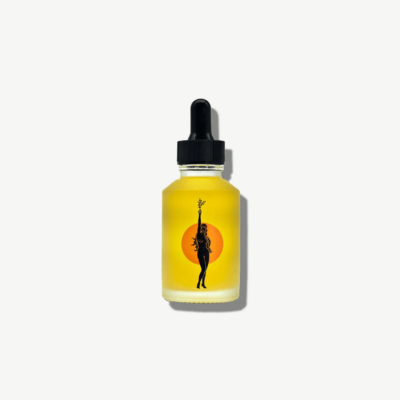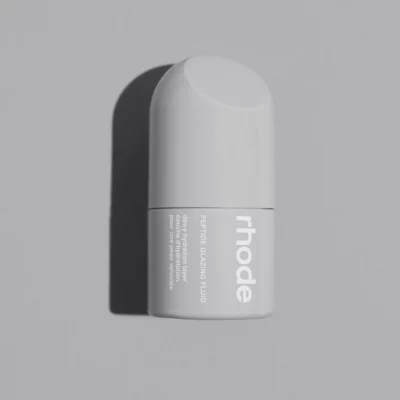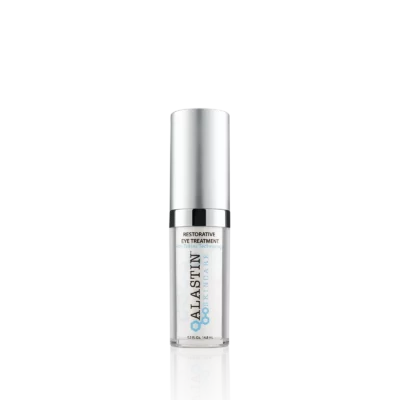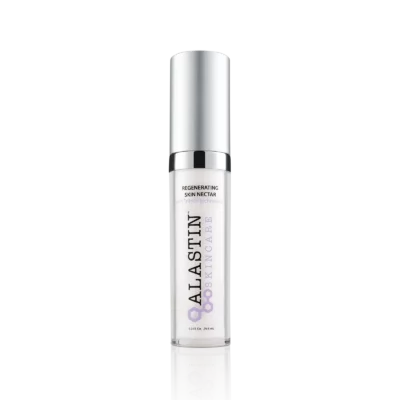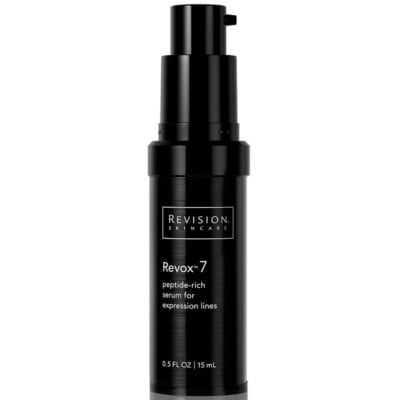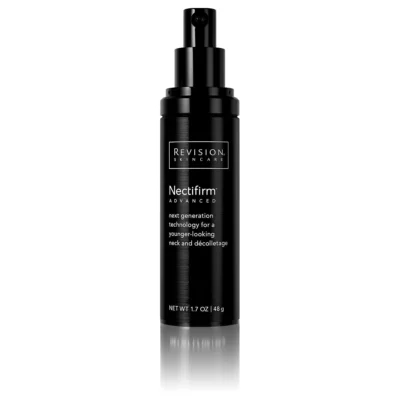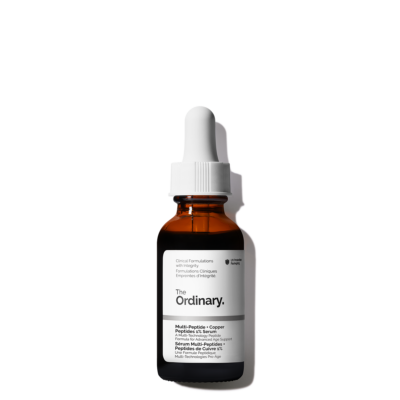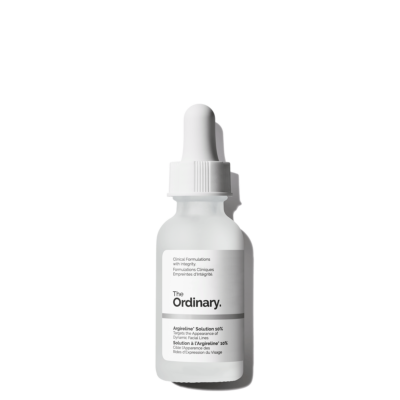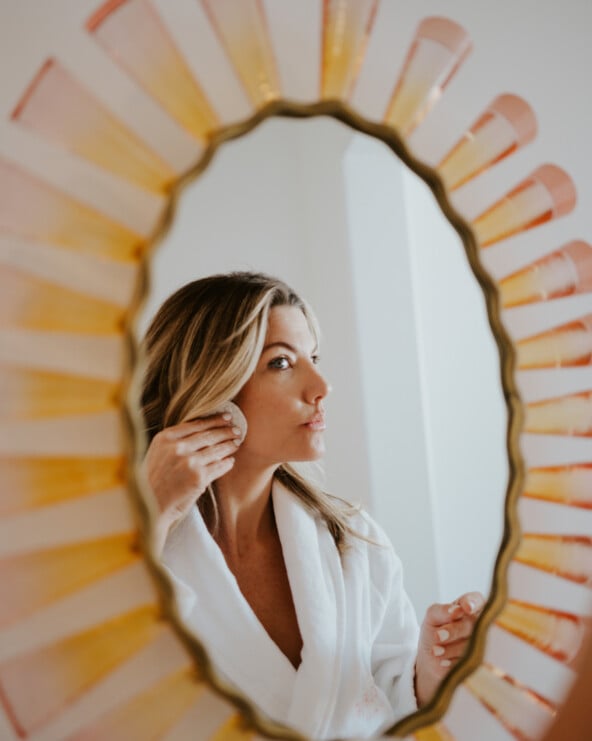We may receive a portion of sales if you purchase a product through a link in this article.
All your beauty questions—answered. Our resident dermatologist, Dr. Geddes Bruce breaks down the biggest topics in beauty, from hair loss to Botox and everything in between. Send us a DM @camillestyles with your own burning q’s and we may address it in a future column.
Peptides are everywhere. In buzzy, whipped moisturizers, celeb-approved lip treatments, and in serums and skin milks. Skincare trends come often and fade fast, but sometimes, hero ingredients emerge and become top-shelf staples. For so long, they were ignored and mispronounced. Now, they’re in even the most streamlined skincare routines. Are we witnessing the birth of a skincare star with peptides for skin? This science-backed, dermatologist-approved ingredient is having a real moment. And this moment is poised to last.
If you’re wondering what using peptides for skincare looks like, you’re not the only one. I vaguely remember hearing about them in science class, but I can’t be trusted to recall anything beyond: “the mitochondria is the powerhouse of the cell.” Now that peptides for skincare have taken over the labels of all my favorite brands, I figured it was time to dive into this newfound skincare hero with the help of a skincare expert.

Peptides for Skin: Everything To Know About This Anti-Aging Ingredient
Over the past year or so, I have noticed many brands introducing peptide-based products. I’ve seen them in every type of skincare product, but what do they do? (And what exactly are they?) Could you share insights into how to integrate peptides into our skincare routine and which products might be the best? – Kristen S.
I’m not the only one intrigued but overwhelmed by the sudden revelation that, apparently, we all need to be flooding our skin with peptides. Maybe we’ve all been served the same social media ads. Or perhaps they are poised to take over from holy-grail ingredients such as niacinamide and ceramides as beauty’s next big thing. To unravel the mysteries of the beauty universe, we’ve called upon board-certified dermatologist Dr. Elizabeth Geddes-Bruce, MD, to explain what’s up with peptides.

Elizabeth Geddes-Bruce, MD is a board-certified dermatologist and dermatologic surgeon specializing in the practice of both cosmetic and medical dermatology. She views cosmetic dermatology as synergistic to a happy, healthy lifestyle and regularly counsels her patients in a balanced, natural approach to both cosmetic and medical dermatology.
What are peptides?
Peptides are small chains of amino acids, which are the building blocks that make up proteins. If amino acids are the bricks, the peptides are the brick wall, and the whole building is a protein. Different combinations of amino acids create peptides with widely varying functions from cell signaling to microbiome defense and more.
Peptides can benefit your skin by increasing hydration, stimulating collagen, and elastin production, decreasing inflammation, and promoting wound healing.

The Benefits of Using Peptides for Skin
Peptides for skincare address the following:
- fine lines and wrinkles
- improved skin firmness and elasticity
- reduced redness
- improved hyperpigmentation
- can also help protect the skin from environmental damage
Almost everyone can benefit from using peptides, and most are easily tolerated. There are formulations to address a number of issues. The real question is: How effective is the product? Have there been scientific studies to back up the claims?
Note that products with peptides can be pricey. Before purchasing, ask: do the costs justify the degree of improvement?

Ingredients to Use With Peptides
Peptides pair really well with hyaluronic acid and ceramides, ingredients that work to promote skin hydration and moisturization. You can also find peptides in products containing antioxidants, acids, and retinols. However, it’s important that they are formulated correctly because harsher ingredients can interact and lead to peptide degradation.
The best peptides products with hyaluronic acid:

How to Choose Peptide Products for Your Skin
Ideally your product will contain a high concentration of peptides and be from a reputable brand that has clinical studies to back up its efficacy. It will be packaged in a way to preserve the integrity of the peptides, which can be super sensitive to environmental factors like higher temps and air.
The specific sequence of amino acids in the peptide is crucial to its function. With countless combinations possible, it’s exciting to think we may have only scratched the surface of what can be accomplished.
The Best Peptide Products, According to a Derm
Alastin Skincare
I absolutely love Alastin skincare products with their TriHex technology that contains peptides to promote the removal of old damaged collagen and elastin and facilitate the promotion of new. Their Nectar helps my patients heal quickly after procedures and achieve incredible results. And their eye cream is my personal favorite.
Revision Skincare
Revision skincare also has an incredible selection of peptide rich products, including Revox 7 that decreases expression lines (I’ve heard it be called “Botox in a bottle”) as well as the cult-favorite Nectifirm that has peptides that work to tighten saggy skin on your neck.
The Ordinary
The Ordinary brand is an affordable skincare line that also has some peptide fan favorites, including their Copper Peptides serum (for firming) and Argireline solution (to target dynamic fine lines).



